MONITORING KNOWLEDGE A LEGISLATION RELATED TO THE SDGS

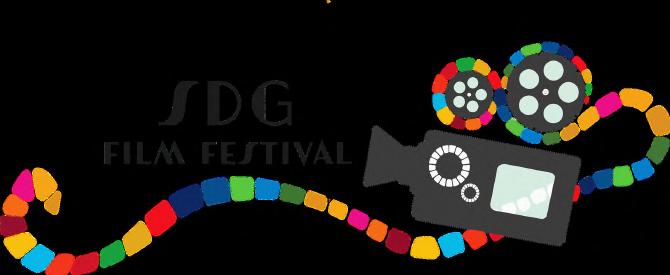
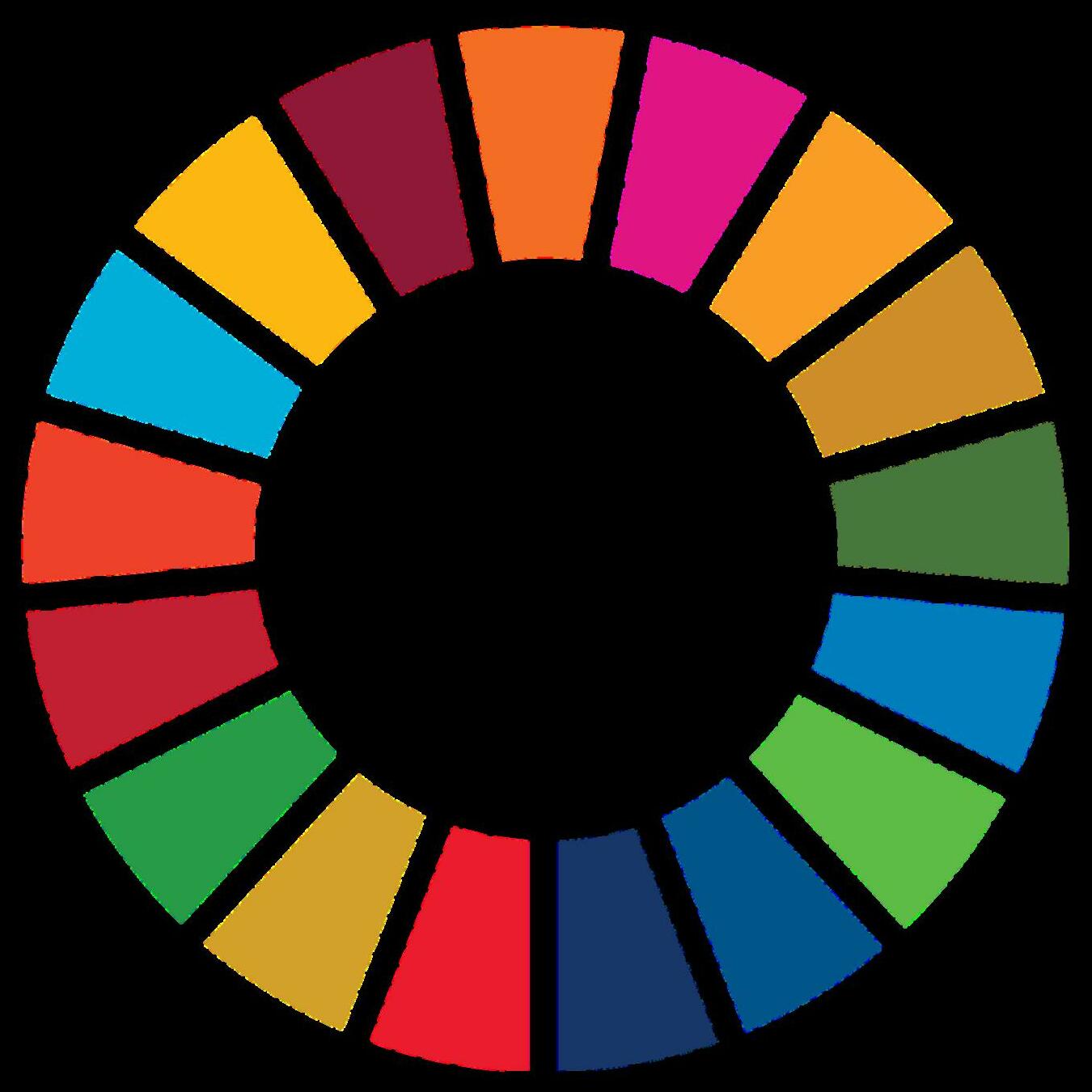
SDG Film Festival




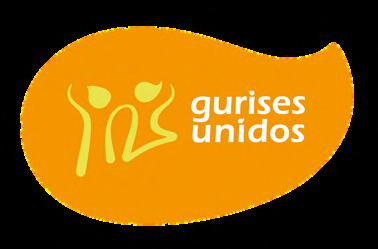
https://sdgfilmfestival.eu
Elaboration

This publication has been produced by Entreculturas, Universidad de Salamanca, Gurises Unidos, Centro de Estudios Paraguayos Padre Antonio Guasch, Fe y Alegría Internacional y BB&R, in the framework of the project "SDG FILM FESTIVAL" (618459 EPP 1 2020 1 ES EPPKA2 CBY ACPALA), between 17 10 2020 and 31 12 2022 Publication 2022
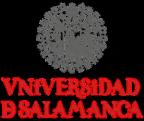
Entreculturas Gustavo Benítez, Jessica García, Sandra Marcos
Universidad de Salamanca Purificación Galindo, Purificación Vicente Ana Nieto, Nerea González
Gurises Unidos Diego Pailos, Mariana Silveira, Santiago García
Centro de Estudios Paraguayos Padre Antonio Guasch Milciades González, Natalia Báez, Lidia Moreal, Simón Martínez
Federación Internacional de Fe y Alegría Juan Pablo Arroyo, Yadira Zúñiga, Sabrina Burgos, Camila Campos (Pontificia Universidad Javeriana)
BB&R
Pablo Biderbost (Ad Honorem), Guillermo Boscán (Ad Honorem), Nalia Rochin, Alonso Escamilla, Paula Gonzalo
CONSIDERATIONS OF USE
This report is divided into three sections The first provides an overview of the knowledge that youth workers and young people from Colombia, Paraguay, Uruguay and Spain perceive they have about the 2030 Agenda, the SDGs, media literacy and audiovisual literacy.
The second section provides a brief overview of the guidelines, legislations, and action plans that, from 2013 to 2022, the governments of Colombia, Paraguay, Uruguay and Spain have implemented to contribute to the achievement of the 2030 Agenda and its SDGs In addition, it also shows which national institution is responsible for ensuring these commitments.
In the third and last section, a list of questions is offered so that youth workers can generate various activities for reflection among young people on the data shown in the previous two sections.
This document has been designed after a learning process among six Ibero American organizations Therefore, it is not intended to be a rigid path, nor to be considered as the only truth. On the contrary, youth workers are free to use this report according to the context in which they find themselves, the characteristics of their youth groups and the knowledge they want to generate
4



INTRODUCTION
In 2015, UN member states approved the 2030 Agenda for Sustainable Development and its Sustainable Development Goals (SDGs) and implementation principles, which represent the vision we should aspire to and achieve by 2030

Following this commitment, six entities joined forces to create the "SDG Film Festival" project with the aim of promoting Ibero American cooperation that contributes to the 2030 Agenda and the Youth Pact 2030 To achieve the above, this initiative succeeded in: 1. 2. 3.
Promote the understanding and achievement of the SDGs among youth workers and young people. Increase the media and audiovisual literacy competences of both youth workers and young people
Generate innovative intellectual practices and results that promote the 2030 Agenda through audiovisual content
This report has been designed to serve exactly the three purposes mentioned above To support professionals to improve their capacities to raise awareness and transmit, through media and audiovisual literacy, about the 2030 Agenda and the SDGs. As well as to reinforce young people's understanding of the relevance of the 2030 Agenda, so that they can become promoters of the SDGs in their localities.
Based on literature research, the project partners developed a multiple choice Google Form survey to identify the knowledge that youth workers and young people had about the 2030 Agenda, the SDGs, media and audiovisual literacy.
6
The survey was active from March to April 2021 and was able to collect responses from 322 participants Within this document, the contents have been divided to know the study sample, the perceptions of youth workers, people's knowledge and a comparison between the four countries of the project: Colombia, Paraguay, Uruguay and Spain. The results can be explored in the first section of this report
Moreover, the partners designed a template matrix to map the legislations in their respective territories from 2013 to 2022. The information identified is the title of the law/decree, year and to which SDG it is linked Likewise, within this mapping we also searched for the monitoring bodies that each country has to ensure the achievement of the 2030 Agenda The results can be explored in second section module 2 of this report.
For the third section, a series of questions were developed so that youth workers can generate a reflective process with young people about the survey data and the legislative landscape. This seeks to generate a debate on the results obtained in this project and even to question, check and generate their own surveys and mappings.
Finally, Entreculturas, Universidad de Salamanca, Gurises Unidos, Centro de Estudios Paraguayos Padre Antonio Guasch, Federación Internacional de Fe y Alegría y BB&R deeply and sincerely believe that you will find this document useful and practical in your daily work with young people
Sincerely yours,
The entire SDG Film Festival team

7
01 02 03
RESEARCH LEGISLATIONS REFLECTION
Discover the knowledge that youth workers and young people have about the 2030 Agenda, the SDGs, media and audiovisual literacy
Explore what guidelines, legislations and action plans are linked to the SDGs in Colombia, Paraguay, Uruguay and Spain.
Find out what questions can help young people reflect, discuss and interrogate the results of this report to reach their own conclusions
INDEX
page 10 page 24 page 34 8
Oursample
RESEARCH
Resultsforyouthworkers
Resultsforyoungpeople
Oursample
Responses were collected from 322 participants, 129 males (40.1%), 191 females (59.3%) and 2 non binary (0.6%). 59.3% were youth and 40.7% were youth workers. Of the youth, 40.8% were male, 58.6% female and 0.6% non binary. Of the youth workers, 38.9% were male, 60.3% female and 0.8% non binary.
The average age of the sample of youth participants was 20.25, compared to an average age of 32.6 for the youth workers. Of the subjects, 24.8% had Colombia as their country of residence, 37.6% Spain, 13.7% Paraguay, 17.7% Uruguay and the remaining 6.2% resided in other countries.
Comparisonsbetweencountries 10
Resultsof youthworkers
27,48%
5,34% 8,40%
0 1 2 3 4
33,59%
25,19% 22,14%
Most of the youth workers reported having a low knowledge of media literacy (62.6 %). A 16.03% reported a total lack of knowledge and, on the contrary, 21.37% claimed to have a high knowledge of media literacy
38.17% 20,61% 6.11% 12,98% 11
21,37% 62,6% 16,03%
At the end of the survey, 58.78% of young workers reported having a high level of knowledge of the SDGs Compared to 35.88% who reported having a low knowledge of the SDGs and 534% who reported having no knowledge at all 0 1 2 3 4
Only 611% of young workers give no importance to the SDGs compared to 38.17% who give them low importance and 5573% who give them high importance
The majority of youth workers reported having a low knowledge of media literacy (58.01%). 12.98% reported a total lack of knowledge and, on the contrary, 29.01% said they had a high knowledge of media literacy.
68.7% of youth workers reported having the necessary knowledge for the transmission of SDG 4 and 66.41% also reported having a high knowledge of SDG 5, which is necessary for its transmission.
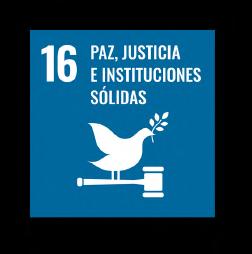
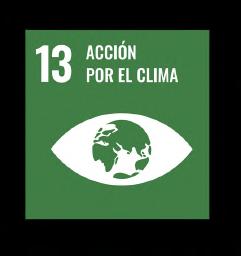
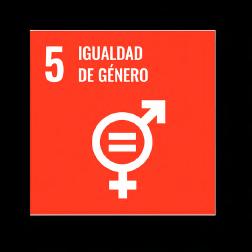
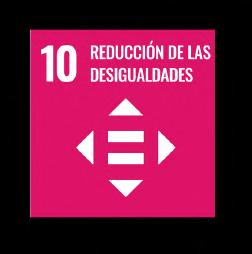
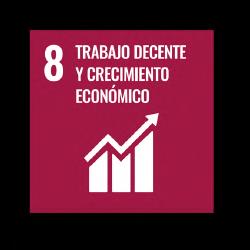
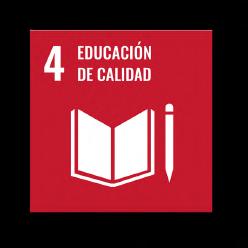
0 1 2 3 4 12,98% 8,40% 36,64% 21,37% 20,61%
68,7%
51,15% 54,19% 48,85% 43,51%
66,41%
12
8.4% of youth workers said they did not have the necessary knowledge to transmit SDG 4 and 12.21% also said they did not have the necessary knowledge to transmit SDG 16.

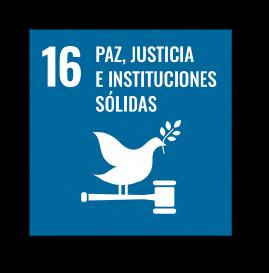
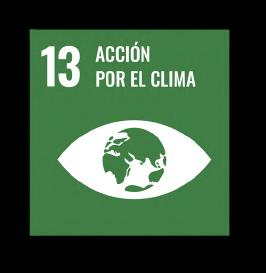

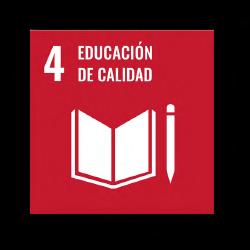
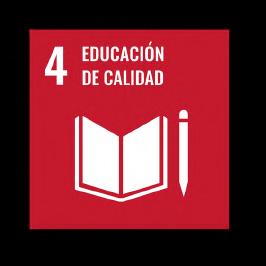

In the group of youth workers, the priority is SDG 4 (351%), followed by SDG 10 (32.8), SDG 16 (14.5%), SDG 13 (8.4%), SDG 8 (5.3) and, finally, SDG 5 (38%)


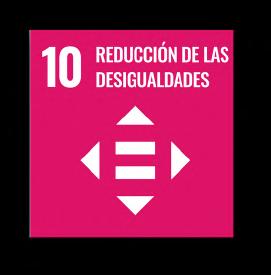
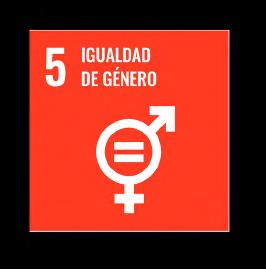

13
32,82%
8,4%
9,16% 9,92% 8,4% 10,69% 12,21% 35,11% 3,84% 5,34%
14,50% 8,40%
Resultsof youngpeople
At the end of the survey, 41.36% of young people reported having a high level of knowledge of the SDGs Compared to 46.07% who reported having a low knowledge of the SDGs and 22.51% who reported having no knowledge at all
The majority of young people reported having a low knowledge of media literacy (4712%) A total of 35.60% reported a total lack of knowledge and, on the contrary, 1709% said they had a high level of knowledge about media literacy.
16.75% of young people give no importance to the SDGs compared to 31.94% who give them low importance and 51.31% who give them high importance
17,09% 47,12% 35,60%
0 1 2 3 4 0 1 2 3 4 22,51% 13,61% 32,46% 32,46% 8,90% 16,75% 8,38% 23,56% 23,56% 27,75%
14
The majority of youth workers reported having a low knowledge of media literacy (5027%) A 2880 % reported a total lack of knowledge and, on the contrary, 20.94 % claimed to have a high knowledge of media literacy.
48.16% of young people claimed to have the necessary knowledge for the transmission of SDG 5 and 3351% also claimed to have the necessary knowledge for the transmission of SDG 13.






15 0 1 2 3 4 28,80% 5,76% 27,23%
15,18%
23,04%
26,18% 31,41% 33,51% 20,42%
33,5% 48,16%
26.7% of young people said they had no knowledge for the transmission of SDG 8 and 24.61% said they did not have the necessary knowledge for the transmission of SDG 16.












17,26%
37,17%
24,61% 10,47% 7,85%
18,32%
26,70% 19,37% 23,56% 24,61%
13,61% 6,28%
En el grupo de jóvenes, el ODS prioritario es el ODS 4 (37.2%), seguido del ODS 10 (246%), el ODS 5 (136%), ODS 16 (n=105), el ODS 13 (7.9%) y por último el ODS 8 (63%)
16
Countrycomparisons
Regarding the degree of knowledge of the SDGs, the same pattern is observed in the countries analyzed, with youth workers reporting the highest degree of knowledge, with the exception of Colombia, where young people report a higher degree of knowledge of the SDGs. In addition, it is worth noting that this degree of knowledge is higher in the case of youth workers in Paraguay.
More than half of young people in Uruguay have a complete lack of knowledge of the SDGs This percentage is also high in the case of young people in Paraguay
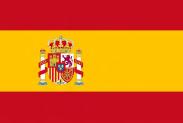

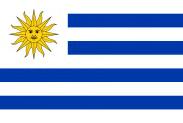

38,89% 17 64,44% 85,00% 47,06% 43,55% 32,9% 16,68% 8,7% Colombia Spain Paraguay Uruguay YOUTH WORKERS YOUNG PEOPLE
11,76% 5,0% 2,22% 52,17% 37,5% 18,42% 11,29% 0% Lack of knowledge High knowledge Colombia Spain Paraguay Uruguay
The importance given to the SDGs in Colombia is high among both young people and youth workers In Spain, Paraguay and Uruguay, youth workers give more importance to the SDGs than young people. However, in the case of Uruguay, it should be noted that almost 35% of young people give no importance to the SDGs




Y O U T H W O R K E R S
67,22% Colombia Spain Paraguay Uruguay 5,56% 51,11% 2,22% 75,0% 0% 44,12% 11,76% 67,74% Colombia Spain Paraguay Uruguay 9,68% 44,74% 15,79% 41,67% 25,0% 39,13% 34,78% Y O U N G P E O P L E Importancia nula Importancia alta 18
In the case of the youth workers:
Colombia: The priority SDG is SDG 10 and the lowest priority are SDGs 5 and 13.
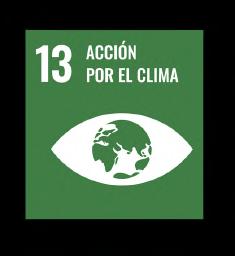


Spain: The priority SDG is SDG 4 and the lowest priority is SDG 5.

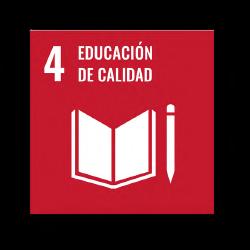




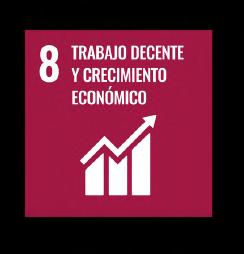
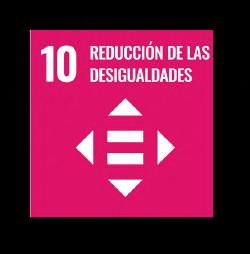

Paraguay: The priority SDG is SDG 4 and the lowest priority is SDG 5
Uruguay: The priority SDG is SDG 10 aand the lowest priority are SDGs 13 and 8.
19
Colombia
Spain Paraguay Uruguay
27,78% 5,56% 5,56% 2,22% 0% 0% 0% 25,0% 37,78% 35,0% Priority SDG Non-Priority SDG(s)
Priority SDG(s) 0%
Non-Priority SDG 5,26%
Uruguay

In the case of the young people:
Colombia: The priority SDG is SDG 4 together with SDG 10, and the lowest priority is SDG 13.




Spain: The priority SDG is SDG 4 together with SDG 10, and the lowest priority is SDG 8




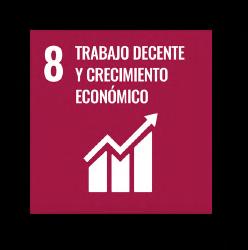


Paraguay: The priority SDG is SDG 4 and the lowest priority is SDG 13.
3,23% 20
Colombia Spain Paraguay
Uruguay: The priority SDG is SDG 4 and the lowest priority is SDG 13 38,71% 33,87% 28,95% 26,32% 54,17% 34,78% 0%
0%
In general, all participants feel that the SDGs are not adequately addressed in their country of residence.




21
YOUTH WORKERS
Colombia Spain Paraguay Uruguay 100% Low approach High approach 20,0% 80% 30,0% 70% 17,65% 82,35% YOUNG PEOPLE 12,91% Colombia Spain Paraguay Uruguay 87,1% 30,27% 69,74% 16,67% 83,33% 17,39% 82,6%
YOUTH WORKERS
22,22%


In general, knowledge of media literacy is low among young people in all countries This pattern is repeated among youth workers, but with lower percentages. In no country is there a high level of knowledge of media literacy.


Colombia Spain Paraguay Uruguay 77,77% Lack of knowledge High knowledge 13,33% 86,67% 35,0% 65,0% 17,64% 82,36% YOUNG PEOPLE 20,97%
22
Colombia Spain Paraguay Uruguay 79,03% 9,21% 90,79% 12,5% 87,5% 21,74% 78,26%
YOUTH WORKERS
33,34%



Knowledge of audiovisual literacy is higher among youth workers in all countries Young people's lack of knowledge shows high percentages in all countries.

23
Colombia Spain Paraguay Uruguay 66,67% Lack of knowledge High knowledge 24,45% 75,55% 30,0% 70% 26,47% 73,54% YOUNG PEOPLE 24,19%
Colombia Spain Paraguay Uruguay 75,81% 15,79% 84,21% 16,66% 83,33% 17,39% 82,6%
LEGISLATIONS










CREATIONOFTHEHIGH-LEVELINTER-AGENCY COMMISSIONFORTHEPREPARATIONANDEFFECTIVE IMPLEMENTATIONOFTHEPOST-2015DEVELOPMENT AGENDAANDITSSUSTAINABLEDEVELOPMENT GOALS. YEAR 2019 EXPEDITIONOFTHE NATIONALDEVELOPMENT PLAN2018-2022 Legislation in Colombia STRATEGYFORTHE IMPLEMENTATIONOFTHE SUSTAINABLEDEVELOPMENT GOALS(SDGS)INCOLOMBIA MARCH 2018 CONPES 3918 FEBRUARY 2015 EXISTENCEOFANATIONAL COMMISSIONTOMONITORTHE SDGINCOLOMBIA THESDGCOMMISSION FEBRUARY 2015 LAW 1955 OF 2019 DECREE 0280 OF 18TH FEBRUARY 26







LAWFORTHEINTEGRALPROTECTIONOFPERSONSWITHDISABILITIES LAWOFEQUALMARRIAGE INTEGRALLAWFORTRANSPERSONS YEAR 2004 THEFOLLOWINGREGULATIONSANDTHEIRYEAROFAPPROVALARENOTEWORTHY: 27 Legislation in Uruguay LAWAGAINSTRACISM,XENOPHOBIAANDDISCRIMINATION YEAR 2010 YEAR 2013 AFFIRMATIVEACTIONSACTFORAFRO-DESCENDANTS YEAR 2013 YEAR 2015 CREATIONOFTHENATIONALINTEGRATEDCARESYSTEM YEAR 2018 YEAR 2017 LAWONVIOLENCEAGAINSTWOMEN(WITHAGENDER-BASED)



ART. 35.1. RECOGNIZES THE RIGHT TO DECENT WORK AND THE DUTY TO WORK LAW 31/2015 OF 9TH SEPTEMBER PROTOCOLOFGOODGOVERNANCEANDDECISION-MAKINGFOR ACTIONOFTHESPANISHNETWORKOFTHEUNITEDNATIONS GLOBALCOMPACT SPANISHCONSTITUTION ART. 27.1. RECOGNITION OF THE RIGHT TO EDUCATION ART. 14. RECOGNIZES THE EQUALITY OF ALL CITIZENS BEFORE THE LAW Legislation in Spain SDG 4 SDG 5 SDG 8 DECEMBER 1978 ACTIONPLANFORTHEIMPLEMENTATIONOFTHE 2030AGENDAINSPAIN SDG 4 SDG 5 SDG 8 YEAR 2015 YEAR 2018 REGULATIONS CONCERNING THE PRIVATE SECTOR IN RELATION TO THE SDGS ENVIRONMENTALEDUCATIONFOR SUSTAINABILITYACTIONPLAN YEAR 2020 ORGANIC LAW 3/2020, OF 29TH DECEMBER, 2010 28



AGREEMENTTOCOMPLYWITHTHE 2030AGENDA LINKED TO ARTICLE 67.4 OF THE STATUTE OF AUTONOMY 29 RELATED TO LAW 9/2006 ON DEVELOPMENT COOPERATION GUIDE FOR ALL PUBLIC POLICIES OF THE AUTONOMY, AT ALL LEVELS, TO BE LINKED TO THE SDGS. YEAR 2017 YEAR 2018 GUIDELINESFORTHEIMPLEMENTATION OFTHE2030AGENDA IIIMASTERPLANFORDEVELOPMENT COOPERATIONOFCASTILLAYLEÓN2017-2020 YEAR 2020 APPROVED ITS EXTENSION THROUGH 31ST DECEMBER, 2021 BY AGREEMENT NO. 108 Legislation in Castilla y León


CREATIONOFTHESUSTAINABLEDEVELOPMENTCOUNCIL COMMISSIONOFGENERALSECRETARIES Follow-up instances ORDER PCI/169/2019, OF 22ND FEBRUARY, 2019 YEAR 2019 AGREEMENT OF 28TH SEPTEMBER, 2017 SPANISHCIRCULAR ECONOMYSTRATEGY KEY SDG SDG 12 SDG 6 SDGS CLOSELY LINKED SDG 2 SDG 8 SDG 9 SDG 11 SDG 13 SDG 14 SDG 15 YEAR 2017 YEAR 2020 (GOVERNMENTOFSPAIN) (REGIONALGOVERNMENTOF CASTILLAYLEÓN) 30
31 Legislation in Paraguay NATIONALDEVELOPMENTPLAN:PARAGUAY2030 YEAR 2014 YEAR 2015 PUBLICPOLICIESFORRURALWOMEN APPROVED BY LAW NO. 5446 SDG 5 NATIONALMIGRATIONPOLICY APPROVED BY DECREE NO. 2794 APPROVED BY DECREE DECREE NO. 4483 SDG 10 YEAR 2016 NATIONALPLANFORDISASTERRISKMANAGEMENTAND ADAPTATIONTOCLIMATECHANGEINTHEAGRICULTURALSECTOR OFPARAGUAY2016-2022 ENERGYPOLICY APPROVED BY LAW NO. 6092 SDG 7 SDG 12 SDG 13
YEAR 2017 NATIONALCLIMATECHANGELAW SDG 13 APPROVED BY LAW NO. 5875 YEAR 2018 EDUCATIONALACTIONPLAN2018-2023 IVNATIONALEQUALITYPLAN2018-2024(IVPLANI) CREATIONOFTHEMINISTRYOFENVIRONMENTAND SUSTAINABLEDEVELOPMENT APPROVED BY LAW NO. 6132 SDG 13 SDG 5 SDG 4 YEAR 2019 CREATIONOFTHENATIONALSTRATEGICCOMMITTEEFORTHE IMPLEMENTATIONOFTHERURALWATERANDSANITATION INFORMATIONSYSTEM APPROVED BY DECREE NO. 3189 SDG 6 LAWONAIRQUALITY APPROVED BY LAW NO. 1269 SDG 12 32
REGULATIONSONNATIONALFOREST MONITORINGSYSTEM PROHIBITIONOFTRANSFORMATIONANDCONVERSION ACTIVITIESOFFORESTCOVEREDAREASIN THEEASTERNREGION 33 YEAR 2020 SDG 13 APPROVED BY LAW NO. 3246 APPROVED BY LAW NO. 6676 SDG 13 NATIONALPLANTOPREVENTANDCOMBATHUMANTRAFFICKING APPROVED BY LAW NO. 4.473 SDG 16 Follow-up instances SDGCOMMISSIONPARAGUAY YEAR 2016
This Commission is responsible for the implementation, follow-up and monitoring of the international commitments assumed by Paraguay in the framework of the "Sustainable Development Goals of the United Nations", by Decree No. 5887/2016. https://www.mre.gov.py/ods/
DEBRIEFING
DEBRIEFING
Reflecting on what we have read in this document seems to be a fundamental part of the process of better understanding and comprehending the 2030 Agenda and its SDGs. Especially when the target group is young people, since giving them space to reflect on these issues will allow them to be aware of their learning, record what they have learned and communicate their learning to their peers.
For all of the above reasons, below we propose a series of questions that you can use to generate these reflections in young people:
Having seen the survey results, what have you learned? What surprised you most about the results of the survey?
If you were to ask these same questions in your community, do you think you would get the same results? Reason your answer Why do you think there were differences in the responses between the four project countries? How would you communicate the results of the survey to your friends? If you had to add one more question to the survey about the 2030 Agenda, the SDGs and media and audiovisual literacy, what would it be?
RESEARCH 1 2. 3 4. 5. 6. 36
LEGISLATIONS
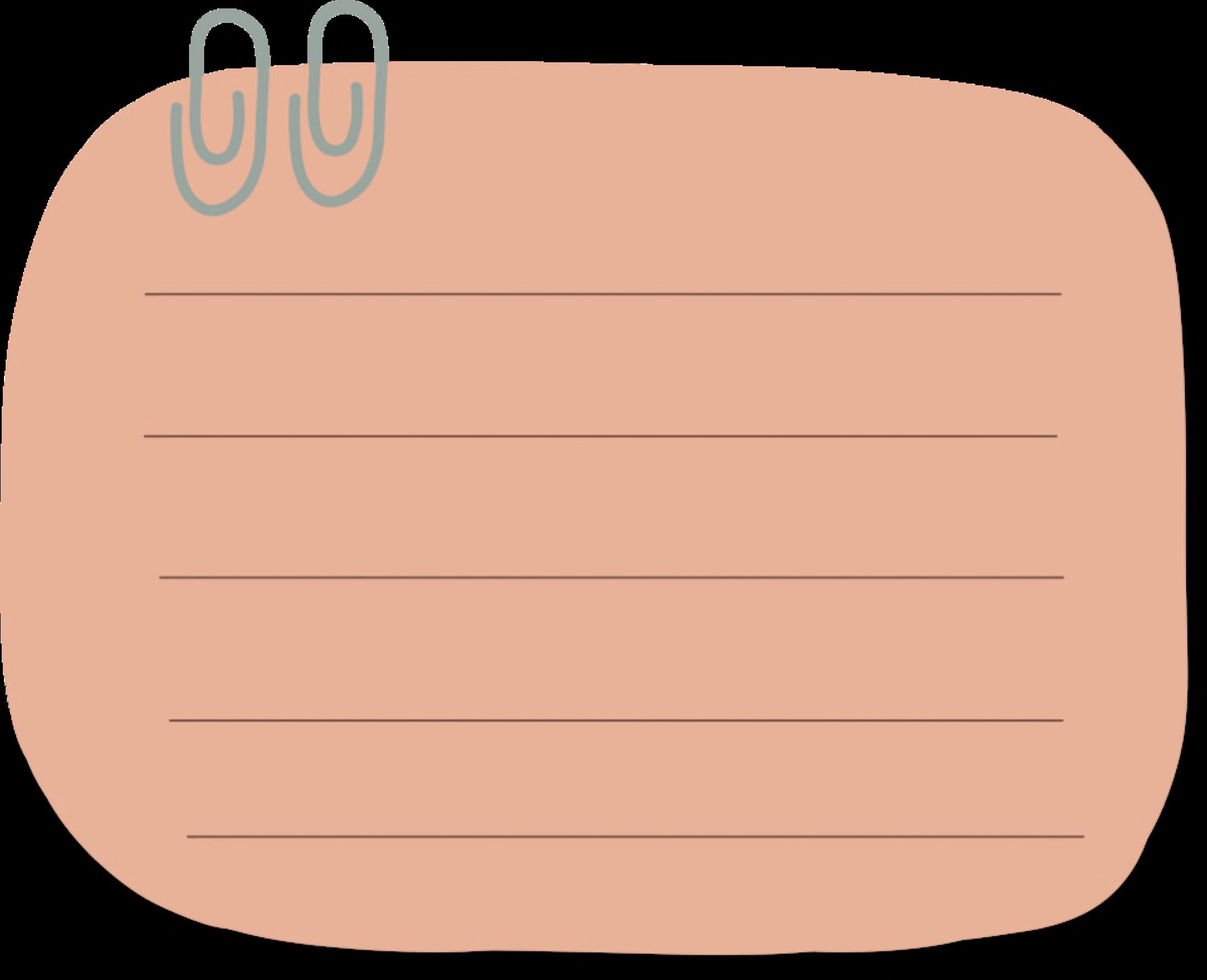
What surprised you most about the timeline of your country's legislation? Before reading this document, did you know any of the legislations of your country that have been mentioned? Which ones did you know, which ones didn't...
What has helped you to become familiar with these laws or what has hindered you in the one/s you did not know?
Since the approval of the legislation in your country, do you consider that it has changed the lives of young people in the following areas:
Quality Education Gender Equality Decent Employment
Reduction of Inequalities Climate Action Peace, Justice and Strong Institutions
How would you communicate the timeline of your country's legislation to your friends?
37
1. 2 3 4. i. ii. iii iv. v vi 5. NOTES
ContactFundación Entreculturas Fe y Alegría
Maldonado, 1 Planta 3 28006 Madrid, España noticias@entreculturasorg https://www.entreculturas.org
Universidad de Salamanca
Plaza Patio de Escuelas Menores, 1 37008 Salamanca, Spain dptoes@usales https://usales
Asociación Civil Gurises Unidos
Carlos Roxlo 1320 11200 Montevideo, Uruguay gurises@gurisesunidos.org.uy https://gurisesunidosorguy/
Centro de Estudios Paraguayos Padre Antonio Guasch (CEPAG)
15 de Agosto 1850 casi séptima proyectada Asunción, Paraguay. comunicacion@cepagorgpy https://cepag.org.py/
Federación Internacional de Fe y Alegría
Calle 35 # 21 19 La Soledad 110311 Bogotá, Colombia federacion@feyalegriaorg http://www.feyalegria.org/
BB&R
Gran Vía, 59 61, Piso 1, Oficina 2 37001 Salamanca, Spain bbyr@bbyrcom https://bbyr.com
38
EUROPEAN COMMISSION
This project has been funded with support from the Erasmus+ Programme of the European Commission. This publication reflects the views only of the author, and the Commission cannot be held responsible for any use which may be made of the information contained therein.
39


MONITORING OF KNOWLEDGE AND LEGISLATION RELATED TO THE SDGS









































